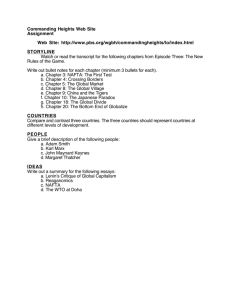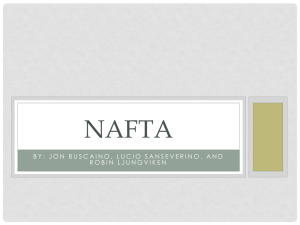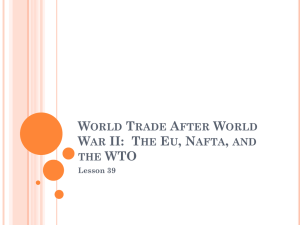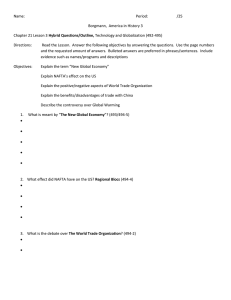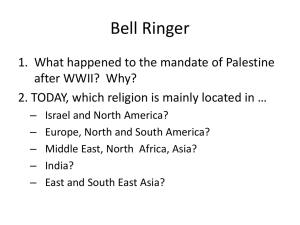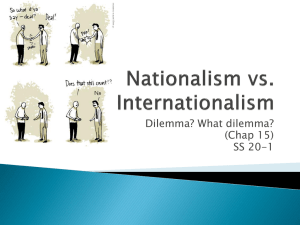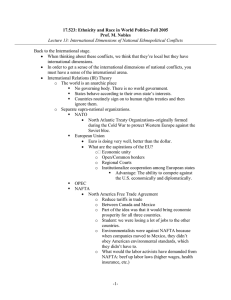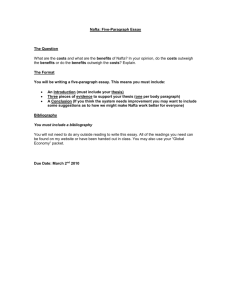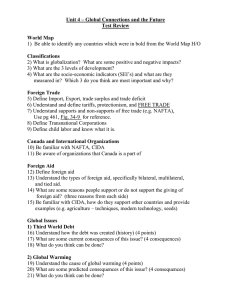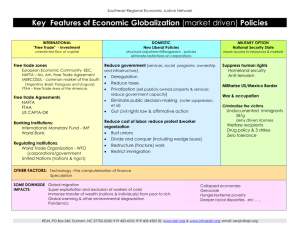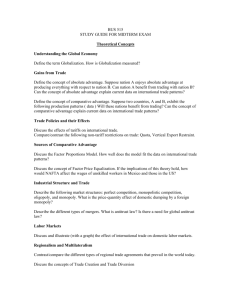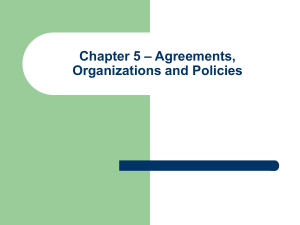Chapter 7.2 notes
advertisement
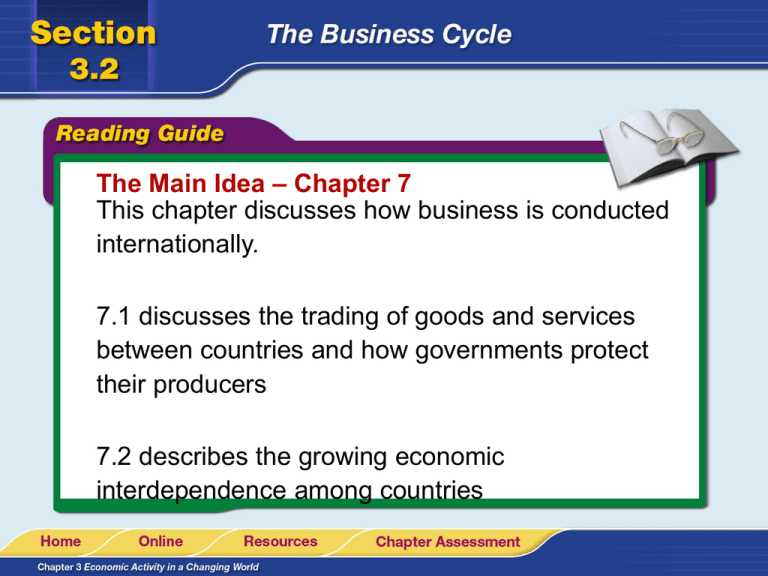
The Main Idea – Chapter 7 This chapter discusses how business is conducted internationally. 7.1 discusses the trading of goods and services between countries and how governments protect their producers 7.2 describes the growing economic interdependence among countries Objectives: - Explain how NAFTA has increased international trade within North America - Describe how managers decide how to get involved in the global economy. - Discuss how managers deal with the challenges they face when working in a different culture. Discussion Why do some people believe it is important to “buy American”? Rise of the Global Economy Nike operates factories in Vietnam and Indonesia The Gap owns stores in Canada, France, Germany, UK, and Japan LG is headquarters are in S. Korea Name some companies and where they are located. Rise of the Global Economy What main factors have made the globe smaller? -Communications tech. -Political changes -Trade restrictions being lifted Global economy An economy in which companies compete actively with businesses all over the world. 1. Improvements in Telecommunications Technology -Internet. Ever buy anything on the net? -e-commerce- sales made over the WWW -email -conference calls -More airlines/flights 2. Political changes -Hatin’ has lessened -The rise in democracy in the world has made it more easier to do business with other nations 3. Free Trade Areas -Created to promote international trade and limit protectionism -Free trade area- a region which trade restrictions are reduced or eliminated. -Largest free trade area in the world is the North American Free Trade Agreement (NAFTA) NAFTA NAFTA -Benefits? -Drawbacks? -Lame student video pg. 165 – Doing Business Globally Forms of International Operations – Foreign Intermediary – Licensing Agreement – Strategic Alliance – Multinational Corporation Forms of International Operations Foreign Intermediary- wholesaler or agent who markets products for companies that want to do business abroad Forms of International Operations Licensing agreement- permits one company to sell another company’s products abroad in return for a % of revenue. Forms of International Operations Strategic Alliance- pooling resources and skills in order to achieve a common goal with another company. In 1998: Forms of International Operations Multinational Corporations- companies that do business in countries other than its own.
